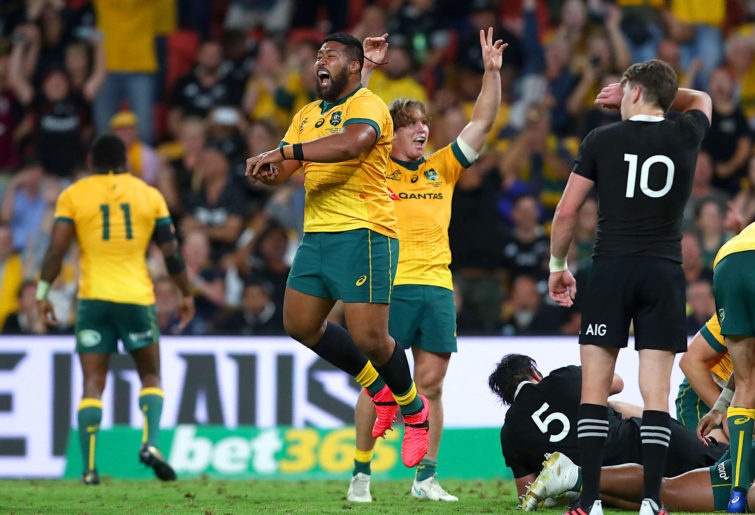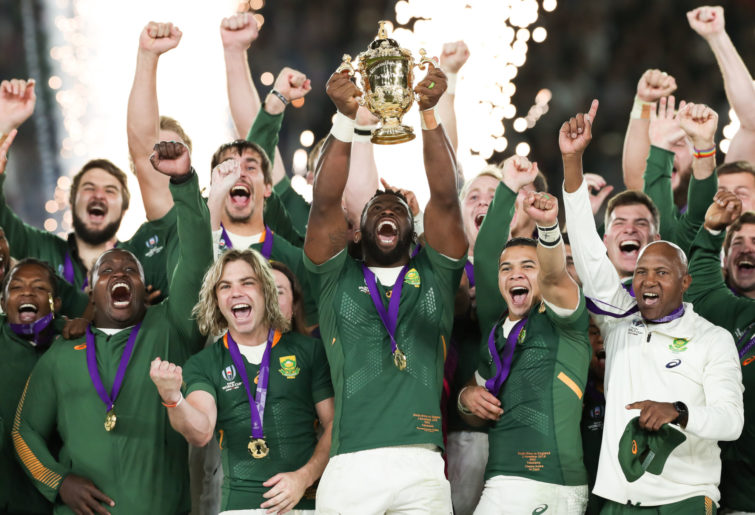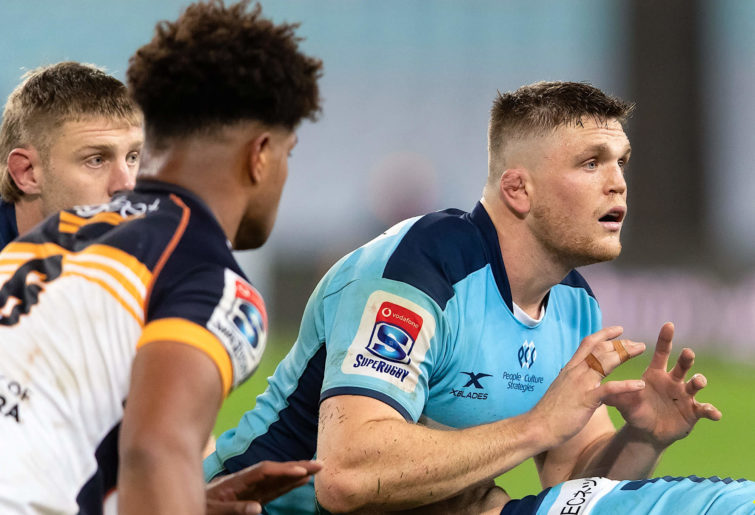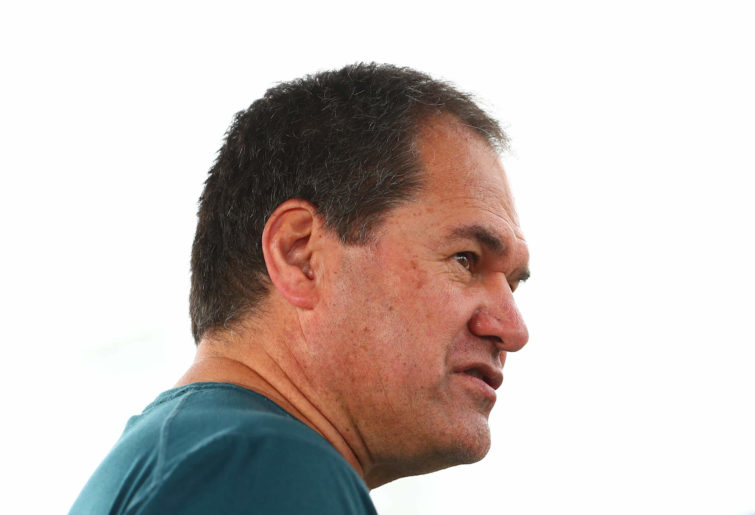After a tough start to the Trans-Tasman competition, most Australians are conceding the next World Cup already.
The record of 18 defeats over four rounds has led many to conclude that Australian rugby has no hope against the best, but the gap isn’t as big as it seems.
There has been a clear improvement from Australian sides as the Trans-Tasman tournament progresses and a few young stars have been unearthed.
The Brumbies and Reds have each tasted success now and both the Force and Rebels pushed their opposition all the way in Round 4. With the exception of the Waratahs, all Australian sides have tasted narrow losses – the Brumbies’ loss by two against the Crusaders and the Force’s loss by a single point to the Chiefs were perhaps the most painful.
In Round 4, the Reds fielded a team that was cobbled together with next to no notice and steered around the park by Hamish Stewart yet only lost by seven to Auckland.
Australian provincial teams have been more competitive this year than say in 2018 or 2019 against New Zealand opposition. That much is certainly true if just looking at Rounds 3 and 4.
Let’s remember that many of the young players involved have hardly played New Zealand opposition. If Super Rugby Aotearoa was so insurmountable and so superior, why are we seeing the gap progressively closing over just four weeks of rugby?
The depth in New Zealand provincial rugby has always been superior to Australia’s. Yet that didn’t stop the Wallabies winning the Webb Ellis trophy in 1991 and 1999. It didn’t stop Australia knocking the All Blacks out of the 2003 tournament or pushing the greatest rugby side ever assembled all the way in 2015.
The All Blacks can’t pick five flyhalves, ten wingers or ten locks. They are restricted to fielding their 15 best players just like we are.

(Photo by Jono Searle/Getty Images)
But again, the narrative is that the New Zealanders are miles better than their Aussie counterparts in every aspect of the game and have much brighter futures. Is that really correct?
Let’s start at our supposed weakest point and work through that question.
Much is made of the state of Australian rugby off the field but mismanagement by administrators is not confined to Australia.
Astonishingly, New Zealand rugby is almost broke. Despite being an almost invincible sporting brand for most of the last decade, administrators in New Zealand have somehow bankrupted the game, an established trajectory well before COVID and the $13.6 million operating loss announced.
Even the world champion South Africans are in trouble. Already with huge player drain to France and the UK, a devaluing currency and relative political instability, they unbelievably decided not to join a superb tournament in Australia last year and now face missing massive chunks of revenue from a Lions tour many believe should not go ahead.
During the 2020 Rugby Championship that the Boks skipped, a young Wallabies side, coached by a brand new coach, came within the width of a goal post of two wins from four against New Zealand. The Pumas shared the honours with the All Blacks.
I repeat, New Zealand no longer has the aura of invincibility that it enjoyed as the greats dominated. But even if they manage to dominate again and wow us all, as admittedly they are prone to doing, success and beating the All Blacks don’t always go hand in hand.
The Springboks, coached beautifully by Rassie Erasmus, won the last Webb Ellis trophy without even beating the All Blacks or the Wallabies. In fact, after the Boks lost to New Zealand in the pool stage, they defeated Japan, Wales and England in the knockout stages before being crowned world champions.
Simply put, you need a mixture of ability, intensity and good coaching to be in a position to win a big trophy and the rest comes down to luck.

(Juan Jose Gasparini/Gallo Images/Getty Images)
Fundamentally, the Wallabies must reduce basic skill errors and turnovers, which they did in half the matches against the All Blacks last year. New Zealand sides, whether at Test or provincial level, win because their handling, tackling and breakdown skills are better.
The aimless kicking, bad passes, dropped balls, missed tackles and lost breakdowns crucify Australian teams too often. As more of these young players are exposed to the best players in the world, those errors will be reduced and are being reduced.
Yet the ability and skill is there as is the desire and hunger. Let’s not forget that many of the likely starters for the Wallabies over the next three years were players who beat New Zealand 24-0 with the under-20s in 2019.
Harry Wilson, Fraser McReight, Lachlan Lonergan and Noah Lolesio then went on to become key contributors to the Australian under-20s’ run to the World Cup final in 2019 where they lost agonisingly by a single point to France.
We’ve seen Mac Grealy debut at the age of 19 against Auckland with half a day’s notice. He was the best on field. Then there is Isaac Henry, who has come from nowhere to be a potential bolter for the Wallabies.
Intensity, though, is more than desire and hunger of which there is no shortage among the young blokes listed above. At Test level, it comes down to not just the physical ability to menace your opposite number but to make them feel uncomfortable mentally. We saw England menace New Zealand in the last World Cup and then the Boks returned the favour.
It is no coincidence that on the rare occasion the All Blacks are rattled, there is a menacing physical presence at the centre of the breakdown accompanying a willing back row. More often there is a team of menacing physical presences possessed by belief and a burning desire to win, which was the case with the Boks in 1995, the Lions in 2017 and most recently England in 2019.
The Wallabies need more of those sorts of physically and mentally intimidating players to supplement the fresh faces of McReight and Wilson. And we have them.
As unpopular as it may be, getting Rory Arnold and Will Skelton back from Europe is key as is persisting with Lachlan Swinton at six. He will become less prone to brain snaps the more he plays.

(Photo by Speed Media/Icon Sportswire via Getty Images)
Many will argue that Rob Valetini and perhaps even Liam Wright deserve a spot ahead of Swinton but I doubt that either has the 30 minutes in them that Swinton had on debut at Suncorp Stadium. He is a very young man playing in a poor provincial team who deserves another opportunity to turn that bruising, confrontational 30 minutes into 60 minutes or even 80.
This brings me to coaching. It is so much more than ranting and raving or being a rugby encyclopaedia.
Eddie Jones hasn’t won a World Cup despite his Rain Man-like knowledge of the game and preparation. Michael Cheika knew how to fire up a side but couldn’t quite reach the pinnacle at Test level either. Much quieter and more understated coaches seem to win World Cups: Bob Dwyer, Kitch Christie, Rod Macqueen, Clive Woodward, Graham Henry and Rassie Erasmus.
Dave Rennie seems to have the rare combination of rugby nous, man management and quiet assurance that most of the names above have. Sure, Sir Clive Woodward is pretty good at informing those around him how great he is now, but back then it wasn’t quite the same.
Rennie is also without the baggage that comes with having coached an Australian provincial side. Ewen McKenzie and Michael Cheika both suffered in different ways from perceptions of bias and politicking, rightly or wrongly. Rennie, however, seems able and prepared to be his own man at the selection table and disconnected from but alert to cliques in his squad.

(Photo by Chris Hyde/Getty Images)
While Rennie has shown an admirable desire not to call upon the so-called Giteau Law, it is time to do so in the lock department. Rory Arnold, Will Skelton and Izack Rodda should all be in contention to partner Matt Philip, who was the find of 2020 in the second row. All four are in France with only Rodda and Philip signed with Super Rugby sides next year.
A side with say Skelton, Valetini, Feleti Kaitu’u and Samu Kerevi all coming off the bench with 25 minutes to play is one worth worrying about, even for the New Zealanders. Anybody who doubts Will Skelton should watch his performances in France this year. He has been the best lock in the northern hemisphere, better than Maro Itoje and Arnold for the last two seasons at least.
There is also enormous and unprecedented depth not in spite of having five teams but because of it. In the forwards the likes of Folau Fainga’a, Pone Fa’amausili, Trevor Hosea, Liam Wright and Isi Naisarani all look hard pressed to even make a 30-man squad as are Matt To’omua and Jordan Petaia in the backs. Even the code hopping superstar Suliasi Vunivalu may find his place in a 30-man squad under pressure.
When I thought about the state of Aussie rugby and a possible Wallabies side for the next World Cup the morning after Round 4 of the Trans-Tasman competition, it didn’t seem quite so hopeless after all.
Possible Wallabies squad for the 2023 World Cup
1. Tom Robertson, 2. Brandon Paenga-Amosa, 3. Taniela Tupou, 4. Matt Philip, 5. Rory Arnold, 6. Lachlan Swinton, 7. Fraser McReight, 8. Harry Wilson, 9. Jake Gordon, 10. James O’Connor, 11. Marika Koroibete, 12. Isaac Henry, 13. Hunter Paisami, 14. Tom Wright, 15. Tom Banks, 16. Feleti Kaitu’u, 17. James Slipper, 18. Allan Alaalatoa, 19. Will Skelton, 20. Rob Valetini, 21. Tate McDermott, 22. Noah Lolesio, 23. Samu Kerevi, 24. Angus Bell, 25. Lachlan Lonergan, 26. Izack Rodda, 27. Michael Hooper, 28. Nic White, 29. Mac Grealy, 30. Suliasi Vunivalu.
Original source: https://www.theroar.com.au/2021/06/07/the-gap-is-not-as-big-as-new-zealanders-like-to-think/
source https://therugbystore.com.au/the-gap-is-not-as-big-as-new-zealanders-like-to-think/
No comments:
Post a Comment